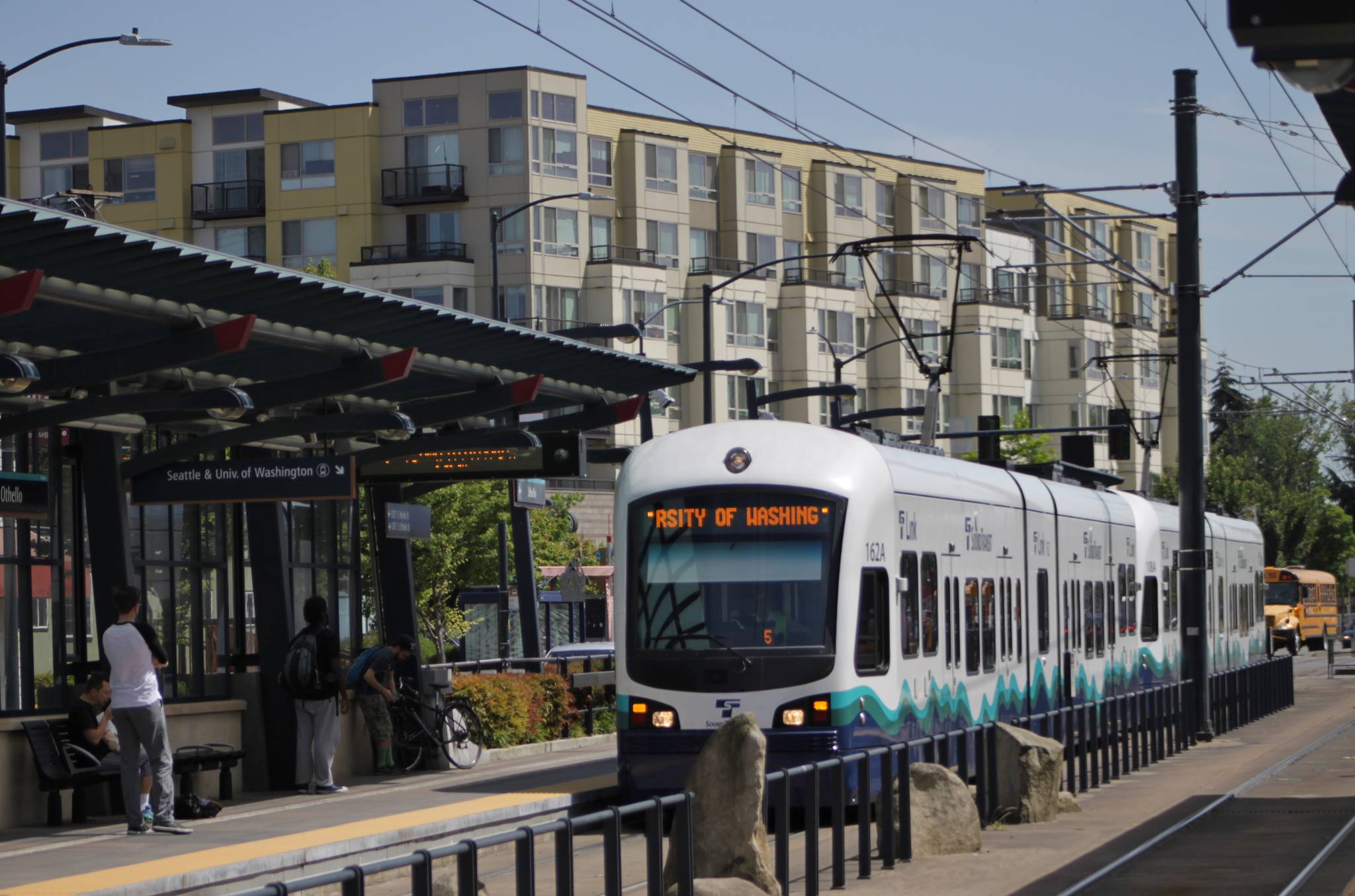Sound Transit will now give almost all of its surplus property surrounding Link Light Rail stations to affordable housing developers.
On April 26, the agency’s board of directors approved a new policy which requires Sound Transit to offer up 80 percent of any surplus property surrounding Link Light Rail stations for affordable housing projects. The measure also mandates that developers utilizing surplus property around light rail stations set aside 80 percent of their residential units for tenants earning 80 percent of the area median income or below.
“Two of the biggest problems facing residents of the Puget Sound region are traffic congestion and the lack of affordable housing,” Snohomish County Executive and Sound Transit Board Chair Dave Somers wrote in a press release. “With this new equitable transit oriented development policy, we will be able to make progress on both of these challenges.”
Sound Transit has long embraced the concept of transit-oriented development, stating in a 2014 report that it was essential to create “compact, walkable, urban centers linked by fast and frequent high capacity transit service.” Prior to the rollout of this policy, affordable housing projects were built near existing light rail stations in Federal Way and South Seattle, while construction is slated to soon begin on an affordable housing project on top of Seattle’s Capitol Hill station. Plans are also in the works to build affordable housing at the Roosevelt Station.
But the new policy changes codifies affordability into the agency’s internal transit-oriented development policies. In 2015, the state Legislature passed a law requiring Sound Transit to prioritize affordable housing development on station surplus property. Over the past year, Sound Transit has worked with stakeholders to develop the new policy.
Puget Sound Sage (a Seattle-based progressive think tank), along with a coalition of affordable housing advocates and minority community organizations, had lobbied the agency for the policy changes in advance of the April 26 vote.
In a March 6 letter to Sound Transit officials, Puget Sound Sage staff argued that the agency should set the affordability requirements for station surplus property to target extremely low-income tenants (i.e. those earning 30 percent of the area median income annually). The letter also called for mandating family-sized housing developments, as opposed to studios and one-bedrooms.
Organizers are pleased with the final policy that Sound Transit landed on. “It was 100 percent a win in our eyes,” said Puget Sound Sage organizer Jessica Ramirez.
Marty Kooistra, executive director of the Housing Development Consortium—one of the advocacy groups that worked with Sound Transit on the policy—is similarly pleased. “We are impressed with the effort that the Sound Transit staff has been putting forth to get a clear policy in place.”
“If you look at the dynamics of the metropolitan region that we have become, transit-oriented development is one of the most critical opportunities that we have to allow people of all means to be able to thrive,” Kooistra added. “Transportation costs and transportation burden on top of housing cost burden can make it very very difficult for lower income people to be able to thrive in the community.”
jkelety@seattleweekly.com
Talk to us
Please share your story tips by emailing editor@kentreporter.com.
To share your opinion for publication, submit a letter through our website https://www.kentreporter.com/submit-letter/. Include your name, address and daytime phone number. (We’ll only publish your name and hometown.) Please keep letters to 300 words or less.

